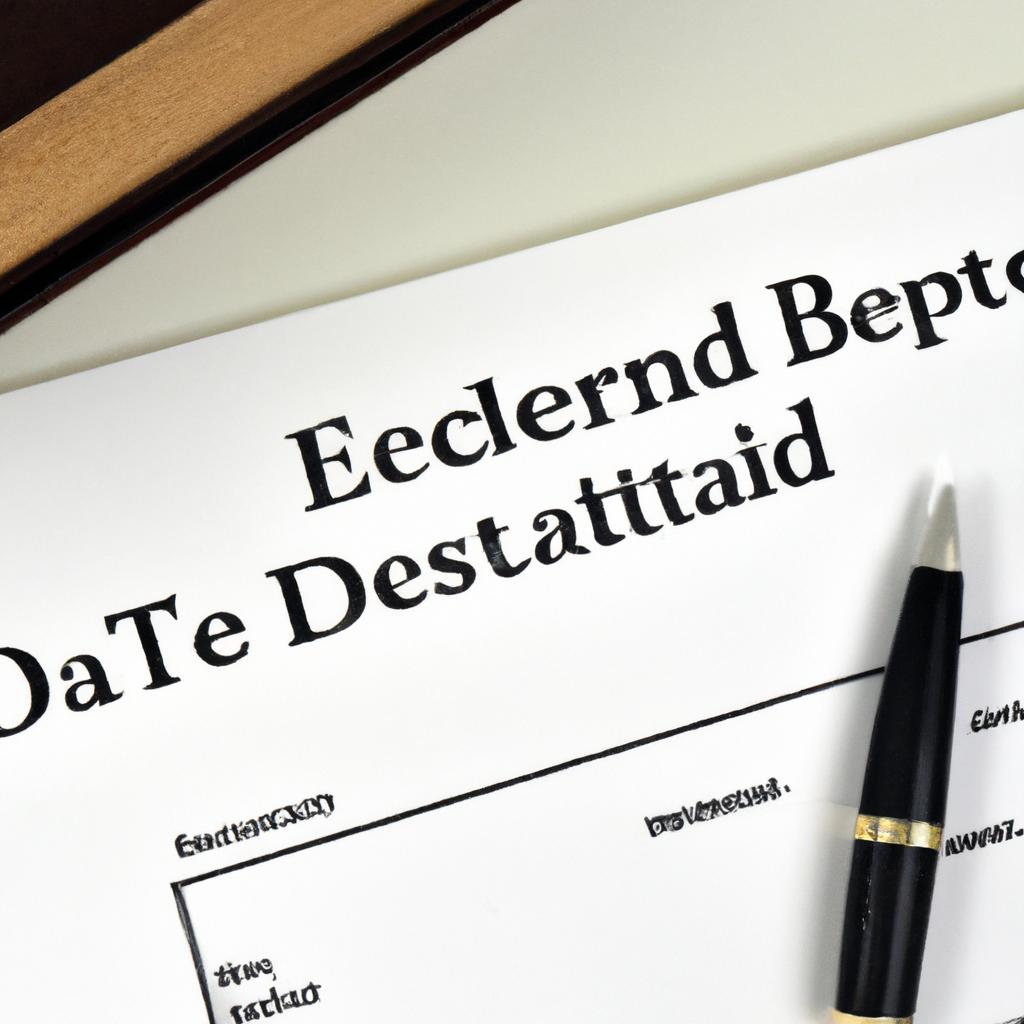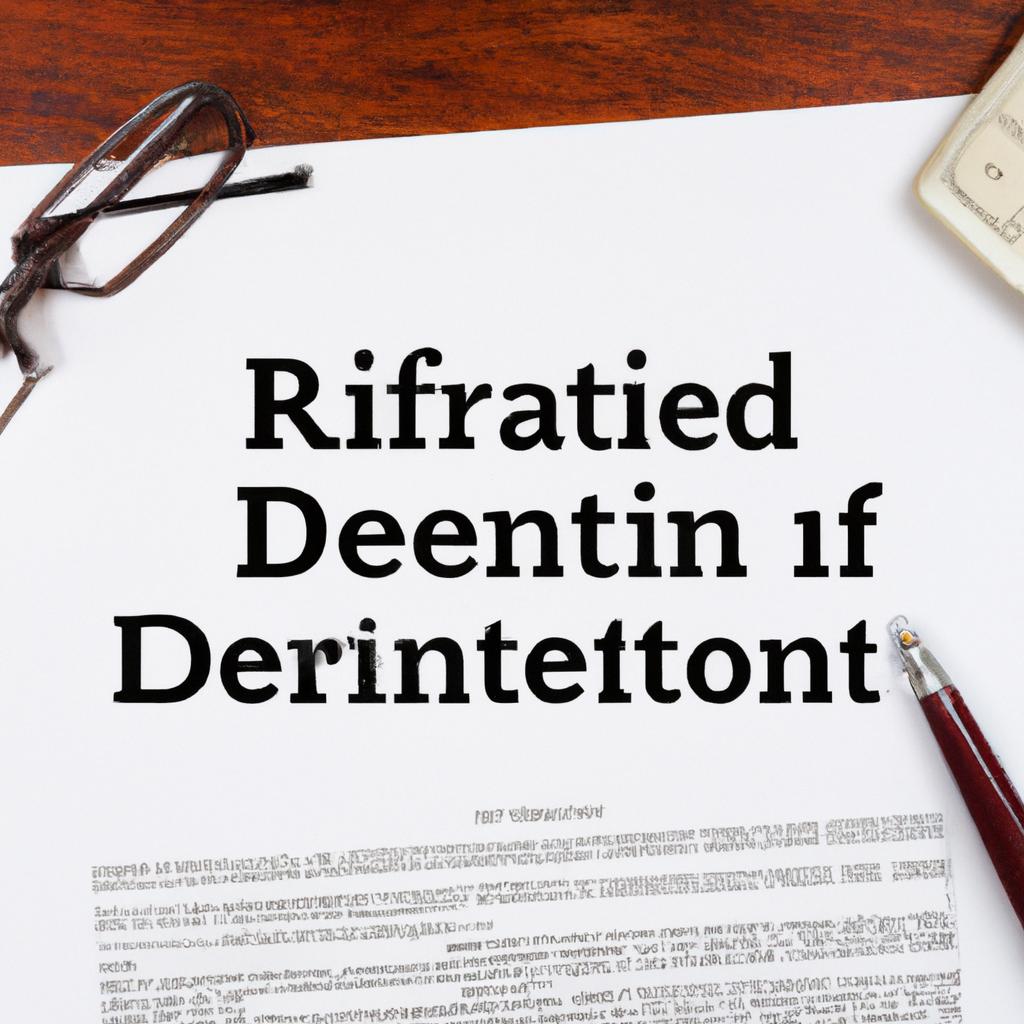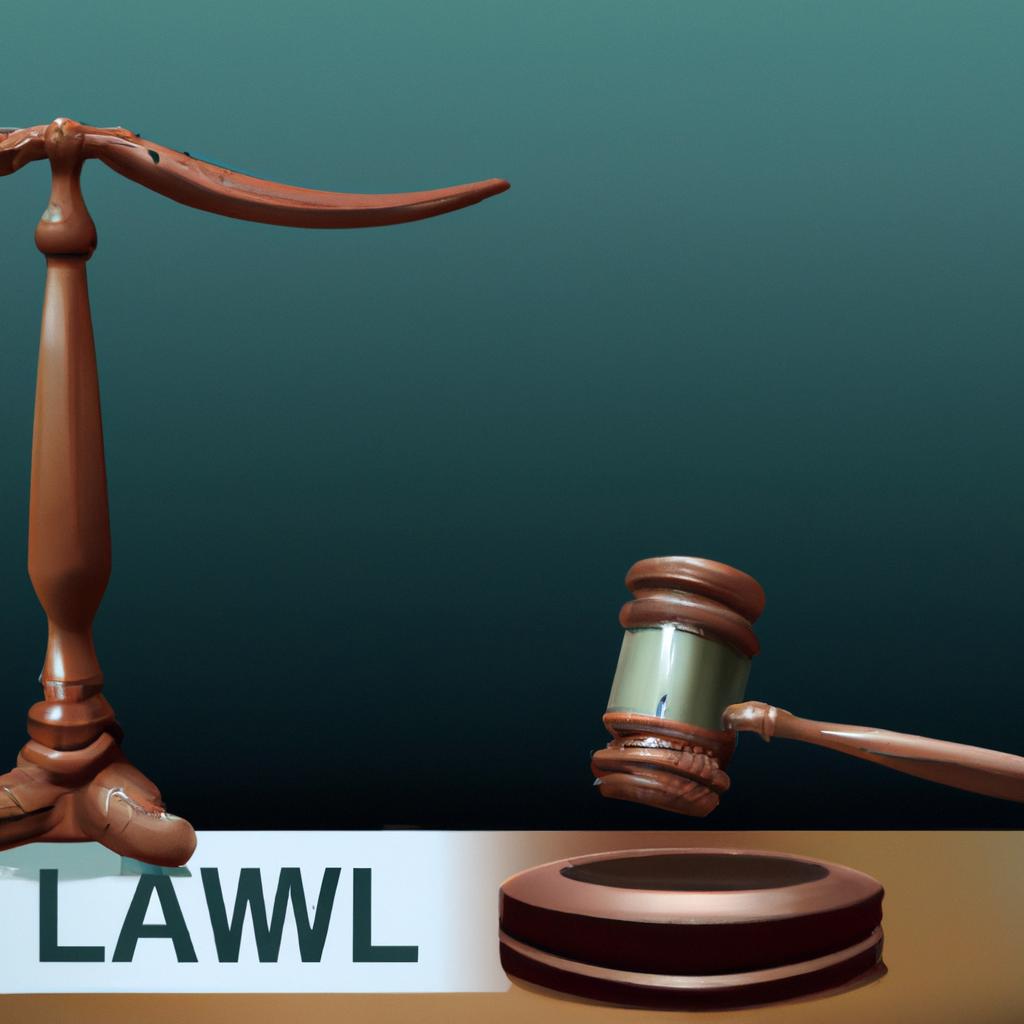In the labyrinthine world of estate planning and property transfer, the role of a deed beneficiary holds a crucial position. As experienced legal practitioners at Morgan Legal Group in New York City, we understand the intricate web of laws and regulations surrounding the designation of deed beneficiaries. In this article, we delve into the nuances of this important concept, shedding light on its significance in the realm of Wills, trusts, and probate. Join us as we explore the complexities of deed beneficiaries and unravel the legal intricacies that govern their rights and responsibilities.
Understanding the Role of a Deed Beneficiary in Estate Planning
When it comes to estate planning, understanding the role of a deed beneficiary is crucial in ensuring that your assets are distributed according to your wishes. A deed beneficiary is someone who is designated to inherit real property upon the death of the property owner. This designation is typically made in a deed, which is a legal document that transfers ownership of real property from one party to another.
It is important to carefully consider who you designate as a deed beneficiary, as this can have significant implications for your estate. A deed beneficiary has rights to the property that override any instructions in a will or trust, so it is essential to ensure that your beneficiary designations are up to date and accurately reflect your wishes. Working with an experienced estate planning attorney can help you navigate the complexities of deed beneficiary designations and ensure that your assets are distributed in accordance with your wishes.

Key Considerations When Choosing a Deed Beneficiary
When selecting a beneficiary for your deed, there are several key considerations that must be taken into account to ensure your wishes are carried out effectively. One important factor to consider is the relationship between the beneficiary and the property owner. It is vital to choose someone who is reliable, trustworthy, and responsible to avoid any potential issues in the future.
Another important consideration is the potential tax implications associated with naming a beneficiary on a deed. It is essential to consult with a qualified estate planning attorney to fully understand the tax consequences and make an informed decision. Additionally, it is crucial to review and update your beneficiary designation regularly to ensure it reflects your current wishes and circumstances.

The Importance of Regularly Reviewing and Updating Deed Beneficiary Designations
Regularly reviewing and updating deed beneficiary designations is a critical aspect of estate planning that should not be overlooked. Failure to keep these designations current could result in unintended consequences and complications for your heirs and beneficiaries. By staying proactive and ensuring that your deed beneficiary designations accurately reflect your wishes, you can avoid potential disputes and ensure a smooth transfer of assets.
It is important to remember that life changes, and so too should your deed beneficiary designations. Major life events such as marriage, divorce, births, deaths, and changes in financial circumstances can all have an impact on your estate plan. By regularly reviewing and updating your deed beneficiary designations, you can ensure that your assets are distributed according to your current wishes and in a tax-efficient manner. Consulting with an experienced attorney can help you navigate these complex decisions and make informed choices that will benefit your loved ones in the long run.

Guidelines for Ensuring Smooth Transfer of Assets to Deed Beneficiaries
When it comes to transferring assets to deed beneficiaries, it is essential to follow a set of guidelines to ensure a seamless process. One of the first steps in this process is to clearly identify the beneficiaries listed on the deed. This can help prevent any confusion or disputes down the line regarding who is entitled to receive the assets.
Additionally, it is important to keep all relevant documentation in order and up to date. This includes keeping copies of the deed, wills, trusts, and any other legal documents that pertain to the transfer of assets. By staying organized and proactive in this regard, you can help to expedite the transfer process and minimize any potential delays. Remember, consulting with a legal professional, such as those at Morgan Legal Group in New York City, can provide valuable guidance and assistance throughout the asset transfer process.
Q&A
Q: What is a deed beneficiary?
A: A deed beneficiary is a person or entity who is named in a deed as the recipient of the property it conveys upon the death of the current owner.
Q: How does someone become a deed beneficiary?
A: To become a deed beneficiary, a person must be specifically named as such in the deed to the property by the current owner.
Q: What are the responsibilities of a deed beneficiary?
A: The responsibilities of a deed beneficiary typically involve accepting ownership of the property upon the death of the current owner, and complying with any legal requirements related to the transfer of ownership.
Q: Can a deed beneficiary be changed?
A: Yes, a deed beneficiary can typically be changed by the current owner of the property through a legal process such as an amendment to the deed or a new deed altogether.
Q: What happens if a deed beneficiary predeceases the current owner?
A: If a deed beneficiary predeceases the current owner, the property typically becomes part of the deceased beneficiary’s estate and may be subject to distribution according to their will or estate laws.
In Conclusion
As we conclude our exploration of the role of deed beneficiaries, it is clear that they hold a crucial position in the transfer of property ownership. Whether you are a beneficiary yourself or seeking to understand the rights and responsibilities of this role, it is essential to fully grasp the implications and potential outcomes. By being informed and proactive, both beneficiaries and property owners can navigate the intricacies of deed transfers with confidence and clarity. Remember, the deed beneficiary is not just a title, but a key player in the intricate dance of property ownership.
 Have you recently inherited a property or are in the process of transferring ownership of a property? If so, you may have come across the term “deed beneficiary” and wondered what it means and how it affects you. In this article, we will dive into all the details of a deed beneficiary and answer any questions you may have.
Have you recently inherited a property or are in the process of transferring ownership of a property? If so, you may have come across the term “deed beneficiary” and wondered what it means and how it affects you. In this article, we will dive into all the details of a deed beneficiary and answer any questions you may have.
What is a Deed Beneficiary?
A deed beneficiary, also known as a beneficiary of a deed or a grantor beneficiary, is a person or entity who is designated to receive the ownership of a property in the event of the grantor’s death. The grantor or property owner, for whatever reason, decides to transfer the title of the property to the designated beneficiary. This transfer of property ownership is known as a beneficiary deed.
A beneficiary deed is typically used in estate planning to avoid the probate process and ensure that the property passes directly to the chosen beneficiary. It is important to note that a beneficiary deed only becomes effective after the death of the grantor. Until then, the grantor remains the owner of the property, and the beneficiary has no legal rights or interest in the property.
Choosing a Deed Beneficiary
The decision of who to designate as a deed beneficiary is entirely up to the property owner. It can be an individual or a group of individuals, such as family members, friends, or charitable organizations. It can also be a trust, business entity, or even a person’s own estate.
Benefits of Choosing a Deed Beneficiary
The main benefit of choosing a deed beneficiary is to avoid the probate process, which can be time-consuming and costly. With a beneficiary deed, the transfer of ownership is usually straightforward and does not involve the court, saving time and money for both the grantor and the beneficiary.
In addition, a beneficiary deed allows the grantor to maintain control and ownership of the property during their lifetime. It also provides flexibility, as the grantor can change the designated beneficiary at any time as long as they are mentally competent.
Practical Tips for Designating a Deed Beneficiary
Designating a deed beneficiary is a significant decision as it involves the transfer of ownership of a property. Here are some practical tips to consider when making this decision:
1. Choose a Trusted and Responsible Beneficiary
It is essential to choose a beneficiary who is trustworthy and responsible. This person should have a good understanding of the property’s value and should be willing and able to take on the responsibility of owning the property.
2. Discuss the Decision with Family Members
If you are considering choosing a beneficiary other than your immediate family members, it is crucial to discuss the decision with them beforehand. This can help avoid any potential conflicts or hurt feelings in the future.
3. Consider the Tax Implications
Transferring a property ownership to a beneficiary can have tax implications. It is advisable to consult with a tax professional to understand the tax implications and plan accordingly.
4. Update the Beneficiary Designation Regularly
Life circumstances can change, and it is essential to review and update the beneficiary designation regularly. This will ensure that the property ownership is transferred to the desired beneficiary and avoid any potential complications or disputes in the future.
Case Study: John and His Deed Beneficiary
John, a widower in his 70s, owns a house in Arizona, where he has lived for over 50 years. His only daughter, Jane, lives out of state and is not interested in owning the property. John wants to ensure that the house passes to his granddaughter, Lily, after his death. He decides to designate Lily as the deed beneficiary of his house.
After John’s passing, the beneficiary deed is recorded, and Lily becomes the new owner of the house, bypassing the probate process. This allows Lily, who is still in college, to keep the house and live in it without the need to sell it or go through a complicated legal process.
Inheriting a Property as a Deed Beneficiary
If you have been named a deed beneficiary, there are a few things you should be aware of.
Firstly, it is crucial to note that the property may come with existing liabilities, such as mortgages, taxes, or liens. It is essential to review any existing debts or obligations and address them accordingly to avoid any financial burden in the future.
Secondly, you may also need to consider the management and maintenance of the property. Depending on your plans for the property, you may need to make arrangements for repairs, insurance, and other ongoing expenses.
Finally, as a deed beneficiary, you may also be responsible for any potential capital gains taxes upon selling the property in the future. It is wise to consult with a tax professional to understand your tax obligations and plan accordingly.
Conclusion
In summary, a deed beneficiary is a person or entity designated to receive the ownership of a property in the event of the grantor’s death. It is an essential tool in estate planning that can help avoid the probate process and ensure a smooth transfer of property ownership. When designating a deed beneficiary, it is essential to consider the tax implications and regularly review and update the beneficiary designation. As a deed beneficiary, it is crucial to be aware of any existing liabilities and plan accordingly for the management and maintenance of the property. Following these guidelines can help make the transfer of property ownership a seamless and hassle-free process.

